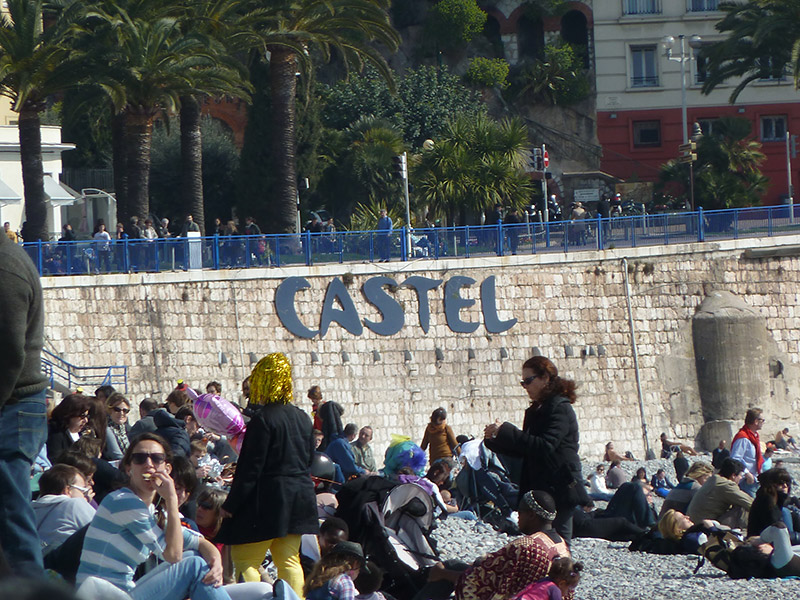 Photo by D. Sharon Pruitt All people live by a culture which is made of up belief systems, habits and norms. At the same time cultures change and for some reason the cultural norms change quite quickly in the United States where cultural fads quickly come and go.
In my recent trip to the United States I was struck by how many young women were speaking with odd gravely voices, which I discovered is known as “creaky voice“ or “vocal fry”. This is a form of speaking where vocal chords are rattled in an unnatural way and then fragmented words emerge from the back of the throat. This seems to be the latest cultural conformity among young women and some studies claim that over 70% of them speak this way. Doctors say it destroys the vocal chords. This form of speaking is almost like a unique dialect where words are broken apart and at the end of a sentence they fade into mini Caterpillar tractor like sounds. Words become a series of guttural fluctuations that get swallowed up the ending word at the end of the sentence. I was wondering if young women do this to differentiate themselves from the previous generation or even to piss-off their mothers? The problem is that even their mothers are now speaking this way. In reality when a woman speaks like this it makes her appear unsure of herself. One can only wonder about the philosophical presuppositions behind creaky voice and why has this become a valued form of communication in today’s female population? Is it a DaDa form of art that has come back to hit us in auditory form? In a Postmodern world is creaky voice a way of tangibly demonstrating that words ultimately succumb to a subjective meaninglessness? Perhaps it is a derivation of the Eastern ‘Om’ chant? What are the origins of this form of speaking and why has it become so popular? Creaky voice is an odd cultural conformity. But more so, I wonder if it is silent fragmented scream that begs for love?
1 Comment
Recently one of my friends here in Spain asked why I chose the pen name Cass Tell? He recognized that I have a need for personal discretion and indeed that’s one of the reasons I decided to live in a remote area of the Costa Brava. Since moving here I’ve found out that many artists, writers and poets live in this area. In fact, in meeting one of the local writers I asked him if there was anything like a get together of these people, having an image of Bohemian artist/writer get togethers in Paris in the 1930’s? He responded, “Oh no. We all know who we are, but we stay within our own worlds.”
Indeed, that’s what I’ve found in coming here in that it provides a unique environment for writing and art. It’s a place where the mind can be creative and run free. Not far from where I live is Cadaques, where Salvadore Dali lived. When I see his art I understand where it came from or at least how the surroundings here contributed not only to the imagery in his paintings, but also to the philosophic undertones. A poet friend of mine once came to stay with me for several weeks and he said this was the best place he ever experienced to write poetry. During that same time a novelist also stayed with me and she used her time to write a wonderful fanciful novel. The surroundings are special and it is a joy to share this with other authors and artists. But, I haven’t answered the first question. How did I choose the pen name Cass Tell? Actually, it came from a visit to Nice, France where I was there doing some research for a novel in the Blue Fate series. After wandering along the promenade des anglais, a pedestrian walkway that follows the coast line, I walked down to the sea. In looking up at the seawall toward the East I saw a large sign that said "CasTel". At that point the name Cass Tell seemed appropriate and it stuck. Today I was in Bonners Ferry with Jacob who manages the ranch where I am staying. Jacob needed to get some Alfalfa seeds to sow on several acres so that they can have enough hay for the cows and horses the following year. The ranch is owned by my old business partner, but he is currently somewhere in the Caribbean on his yacht. I decided not to stay in his main ranch house, but rather in a log cabin that is in a remote place at the end of the ranch.
The owner of the seed store had a beard, checkered long sleeve cotton shirt, jeans and boots. Jacob explained that the owner was a Mennonite. The store was busy with pickup trucks parked at a loading dock in front of the store and men were carrying large seed bags and placing them in the back of their trucks. There was one group of men standing next to the loading dock and I heard them talking about the weather. On the way back to the ranch Jacob said, “Did you notice the one man with the red checkered shirt?” “Yes,” I said. Jacob smiled and said, “He’s got a hopper full of problems.” “How’s that?” I replied. “Multiple wives. He’s one of them traditional Mormons. Just keeping one wife happy is a heap of work, but to have three must be a real problem.” “Do you know much about them, that is how they live and what they believe?” “A bit. They all live in a couple of simple houses over by the Montana border and have a bunch of kids running around. I’m not sure how it works, but he rotates around each night, so I heard. Must wear him out,” Jacob laughed. “What’s their belief system?” I asked. “Some mumbo-jumbo about owning a planet some day and that a man is like the hub of the wheel and the more spokes you got the better, with the wives being the spokes. A woman’s got to live that way and please her husband or she don’t make it to the planet. It all came from John Smith because that’s the way he lived and believe me he had plenty of spokes in his wheel.” “But the current Mormons don’t live that way,” I stated. “Naw. Their Prophet is always shifting their truth around which in this case was quite convenient. Years ago they had to change their laws in Utah to become a U.S. state so low and behold the prophet had a revelation and things were changed. Having multiple wives became illegal. But there are still a lot of hangers-on to the old ways.” “How many of these traditional Mormons do you have in Boundary County?” "We ain’t got many. Most are down in Utah." On the ride back we talked about the different religious groups in Boundary County including the more recent arrivals who were into New Age beliefs. At the same time I reflected on these traditional Mormons who held to the original beliefs of John Smith. It is interesting how one man can create a set of thoughts and people will cling to those thoughts for generations to come. And much of the time people hold to those beliefs without questioning the underlying presuppositions. The lifestyle of the traditional Mormons definitely goes against the historical values of many people in the United States and other countries. But there are places that allow polygamy. The Islamic world allows up to four wives, and there is a practice of polygamy in many countries in Africa. It‘s interesting that in today’s Western world we see a pattern of men and women going from marriage to marriage, or even skipping marriage and just going from partner to partner. I wondered about the philosophical presuppositions behind these different practices and reflected on the stability given to a culture by having a system of one man and one woman together for life. The discussion with Jacob opened up some questions in my mind, which I was sure I would be thinking about during the coming days. |
CategoriesArchives
November 2020
|
- Home
-
Books
- Faraway Lands - a novel >
- The Hot Pepper Lover - a novella
- Naked Island - a novel
- Wings Series >
- The Coffee Lover - a novel
- Dance with Poetic Sea - a novel
- The Savant - a novel >
- The Cookbook - a novel >
- Baba Yaga's Son
- Amy and Jack >
- Virtual Eyes
- A Smile Forever
- Startup (Blue Fate 1)
- Buyout (Blue Fate 2)
- Dropout (Blue Fate 3)
- Squeeze (Blue Fate 4)
- Pursuit (Blue Fate 5)
- Pale Tides
- Social Code
- Short Stories
- About
- Blog
- Contact
|
Copyright © 2013 Destinée Media
|
- Home
-
Books
- Faraway Lands - a novel >
- The Hot Pepper Lover - a novella
- Naked Island - a novel
- Wings Series >
- The Coffee Lover - a novel
- Dance with Poetic Sea - a novel
- The Savant - a novel >
- The Cookbook - a novel >
- Baba Yaga's Son
- Amy and Jack >
- Virtual Eyes
- A Smile Forever
- Startup (Blue Fate 1)
- Buyout (Blue Fate 2)
- Dropout (Blue Fate 3)
- Squeeze (Blue Fate 4)
- Pursuit (Blue Fate 5)
- Pale Tides
- Social Code
- Short Stories
- About
- Blog
- Contact

 RSS Feed
RSS Feed



